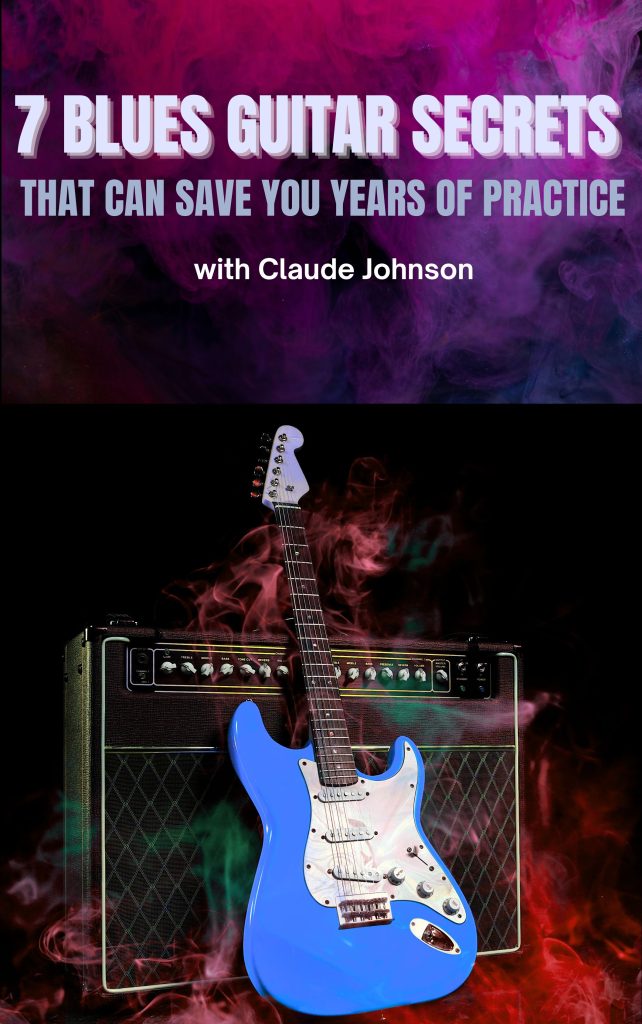7 Blues Guitar Secrets that Can Save you Years of Practice
SECRET 6: Write riffs
Let’s explore the concept of “Write Riffs.” Crafting your own riffs can significantly contribute to your improvisational skills. Previously, you might have seen riffs as separate from soloing, but now it’s time to recognize their role in enhancing your musical vocabulary and improvisation within the blues genre.
Writing blues riffs allows you to create personalized musical fragments that can serve as powerful tools in your playing. Improvisation, despite its association with spontaneity and feeling, benefits from building a musical vocabulary. As you work on writing riffs, they become part of your musical language, adding depth and character to your improvisational arsenal. The process often begins by establishing a groove, emphasizing specific beats within a measure. For instance, you may start on the “and” of four, creating a smooth transition into your self-created riff.
Demonstrating a complete riff, you can add notes strategically, turning a simple groove into a dynamic musical phrase.
Riffs need not always span two bars; a one-bar riff can be just as impactful. Consider creating variations within a one-bar riff, leading to a sense of continuity in your blues playing. Taking a self-written riff through a full 12-bar blues progression is crucial, providing a comprehensive view of its application within a song.
Here’s an example of a self-written riff based on a shuffle rhythm, incorporating triplets and syncopations. By understanding the rhythmic placement of notes, you can infuse character into your own riffs. This leads to an essential principle: a riff is not merely a pre-written part but a flexible foundation for your improvisation.
When playing in a song, your self-written riffs can serve as starting points for your improvisational journey. Embrace the idea of crafting your own riffs, allowing them to guide your improvisation without the pressure of creating everything on the spot.
In essence, incorporating self-written riffs into your blues playing provides a personalized and structured approach to improvisation. It’s about building a balance between spontaneity and preparedness, offering a reliable starting point for your musical exploration.
